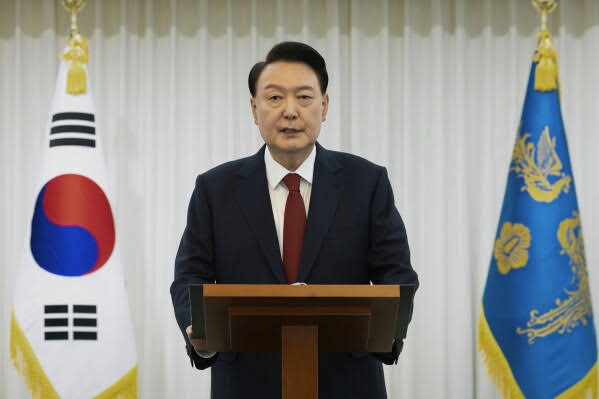South Korea is a country known for its strong democracy and political stability.
But this December, everything changed when President Yoon Suk Yeol declared martial law. The announcement shocked the nation.

Images of soldiers storming the National Assembly, breaking windows, and scaling fences dominated the news, leaving people worried about the state of their democracy.
Although the martial law lasted only a short time, its impact was massive.
South Korea lawmakers quickly acted to strip Yoon of his presidential duties, but the damage had already been done.
The situation has sparked a crisis, and the country is now navigating one of the most challenging moments in its political history.
Request For Arrest Warrant
On Monday, investigators revealed they had requested an arrest warrant for Yoon after he refused to appear for questioning multiple times.
The former president faces serious charges of insurrection, which could result in life imprisonment or even the death penalty if he is found guilty.
People Also Read: See Why South Korea Bans Officials From Foreign Travel
“The Joint Investigation Headquarters filed an arrest warrant for President Yoon Suk Yeol with the Seoul Western District Court,” investigators said in a statement.
South Korea’s political turmoil deepened late last week when Yoon’s replacement, Han Duck-soo, was also impeached by parliament for failing to sign through bills for investigations into Yoon.
South Korea New Acting President
Finance Minister Choi Sang-mok has taken over as the new acting president and found himself thrust immediately into a disaster with the Jeju Airplane crash that claimed 179
This is the first time in South Korea’s history that an arrest has been sought for a sitting president before an impeachment ruling is finalised.
As the constitutional court decides on his impeachment, the country is left waiting.
South Koreans are anxious to see whether justice will prevail and whether their democracy will emerge stronger from this crisis.

